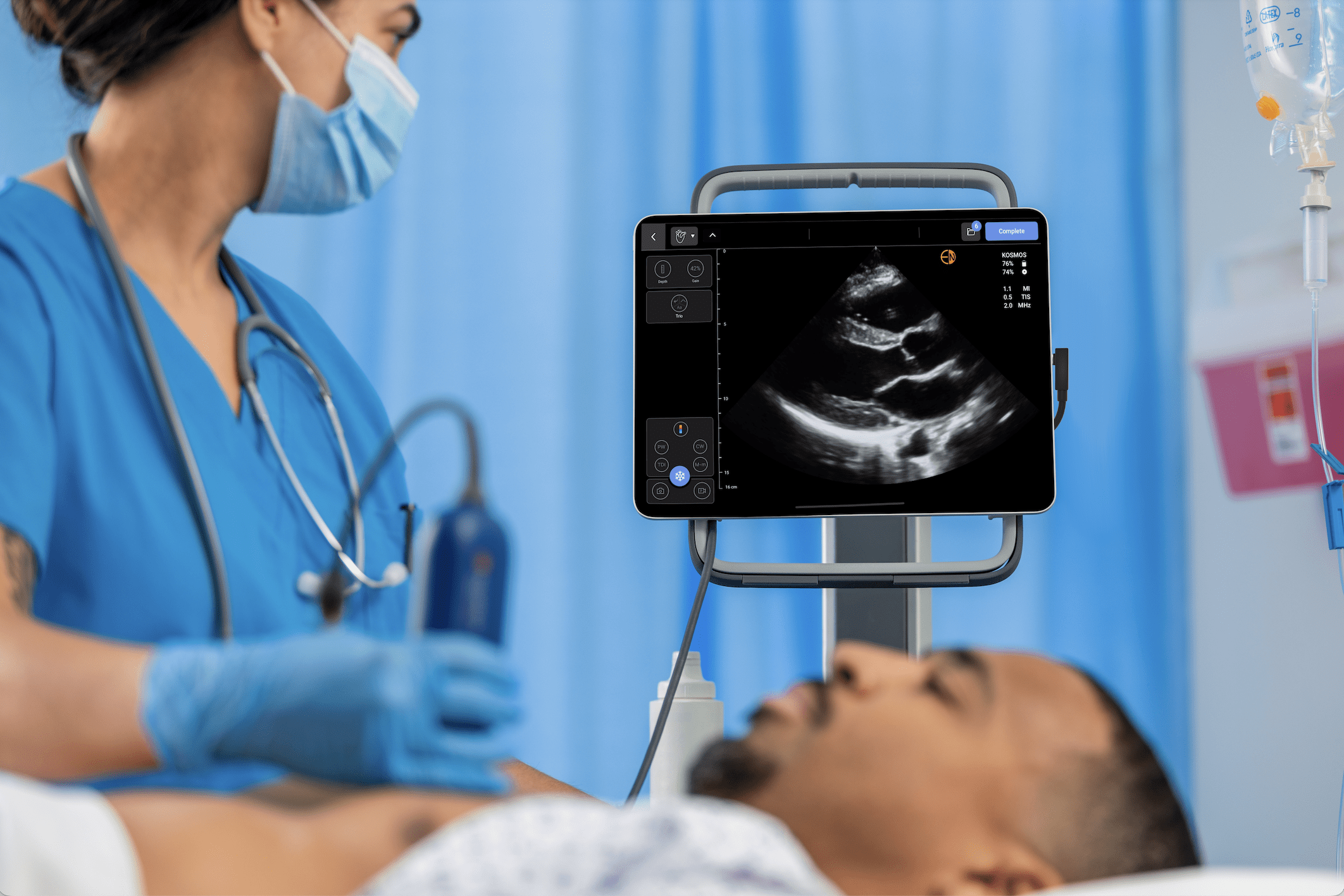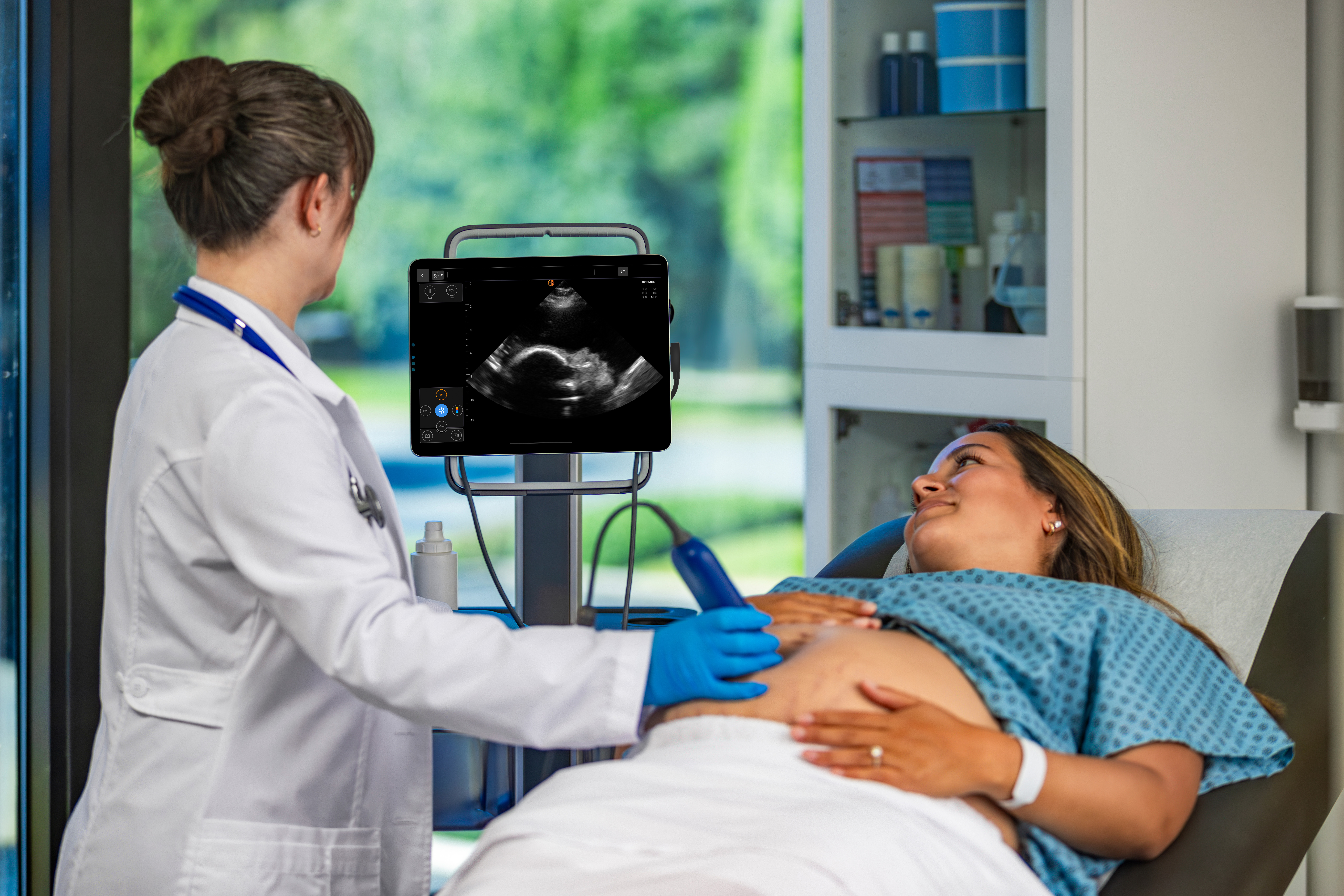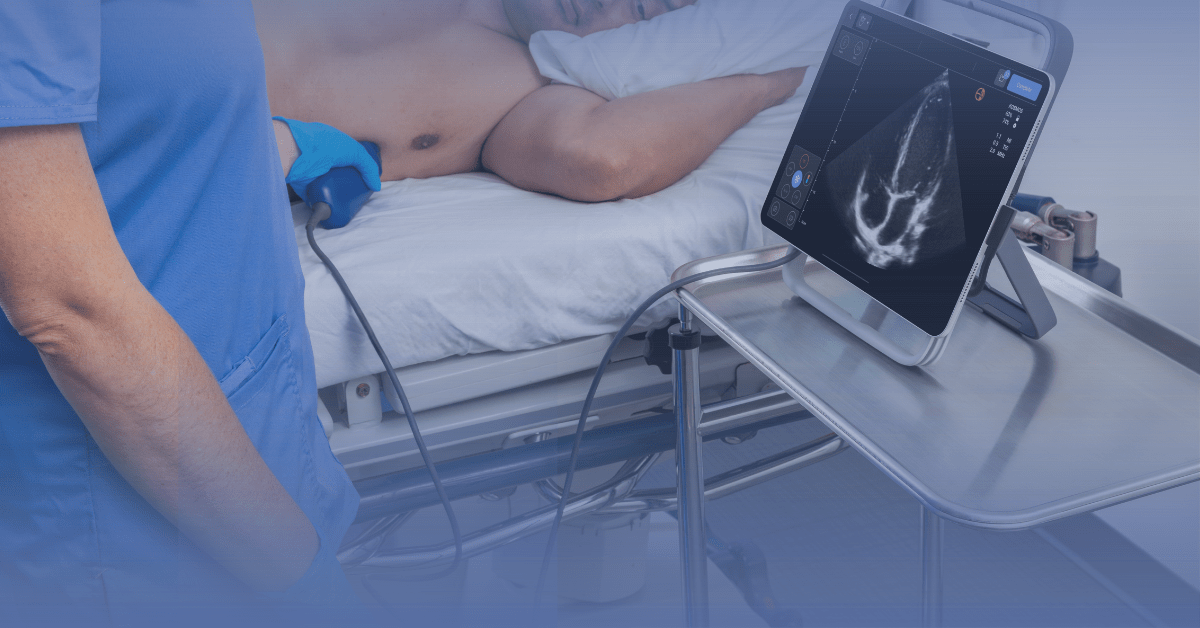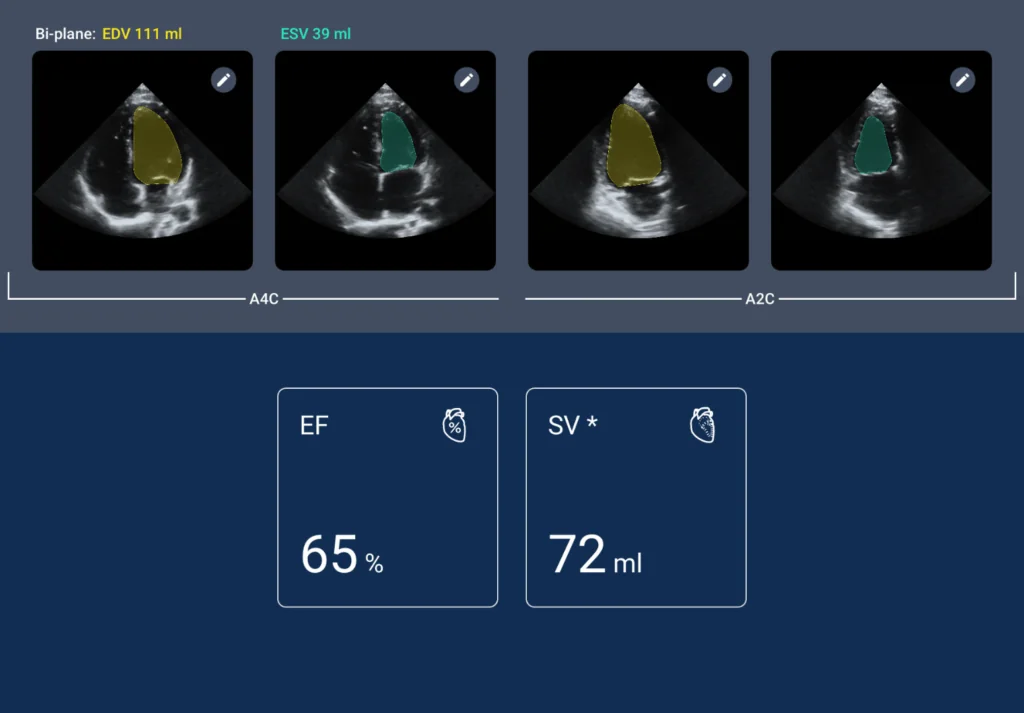Finding Criteria for Amyloidosis Diagnosis With POCUS AI
A 73 year old male patient presented with right sided heart failure. His ECG revealed atrial fibrillation.
On clinical examination increased jugular venous pressure and a holosystolic murmur was noted. Bedside examination with KOSMOS revealed thickened LV and RV walls with impaired systolic function of both ventricles. All valves were mildly thickened. Mild to moderate mitral regurgitation and significant tricuspid regurgitation were seen. The IVC was dilated and mild pericardial effusion was noted. All these features strongly pointed towards cardiac amyloidosis which was later confirmed with cardiac MRI.
A4C view showing thickened ventricles with impaired systolic function
A4C view showing significant tricuspid regurgitation
CW signal of tricuspid regurgitation
A2C and A3C views showing impaired LV systolic function 01
A2C and A3C views showing impaired LV systolic function 02
A3C view showing mild to moderate mitral regurgitation
Subcostal long axis view showing thickened ventricles with impaired systolic function
Dilated IVC




